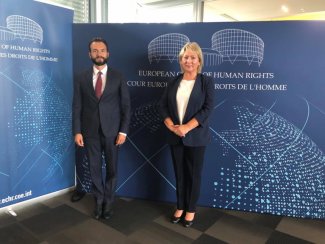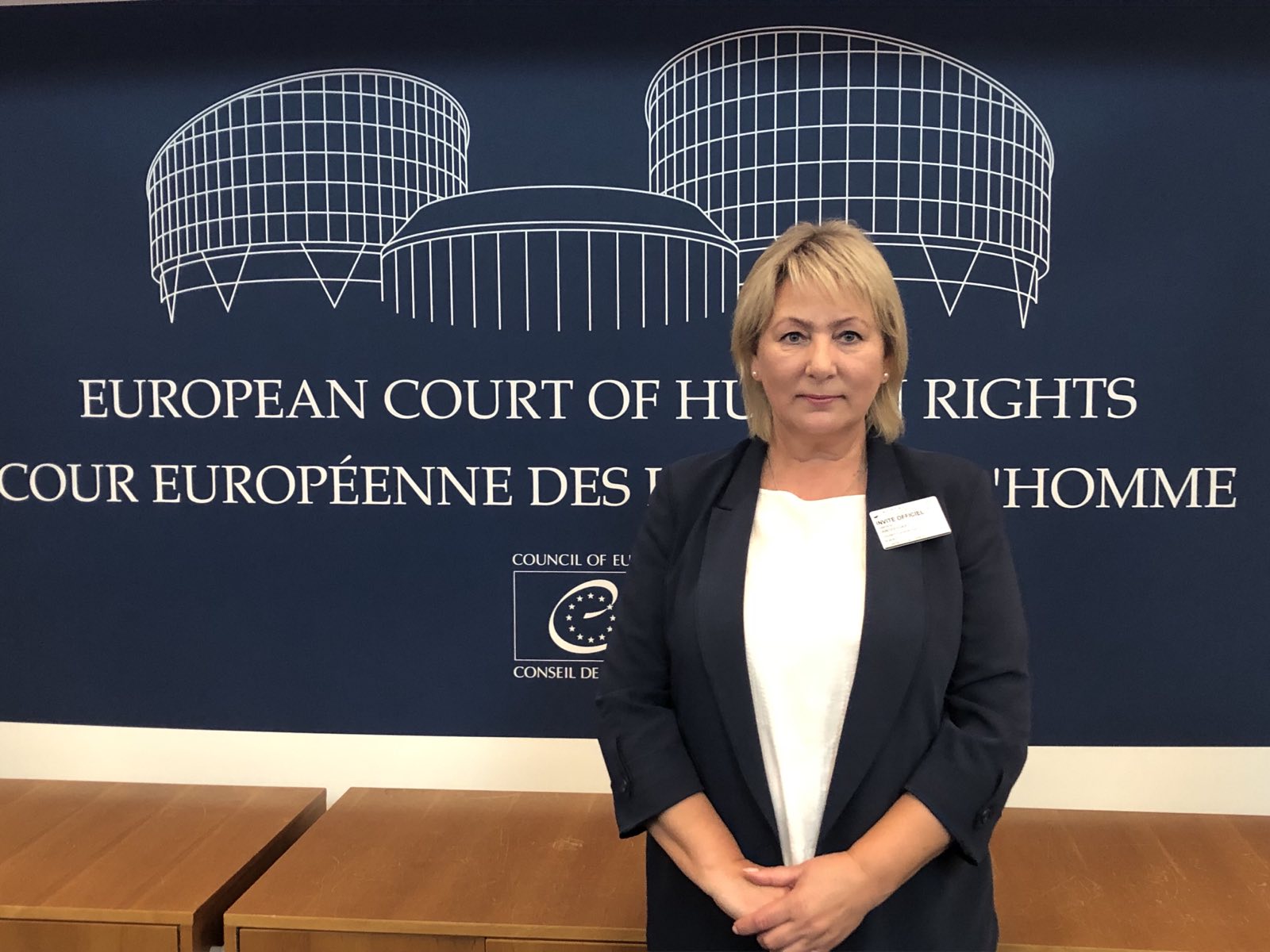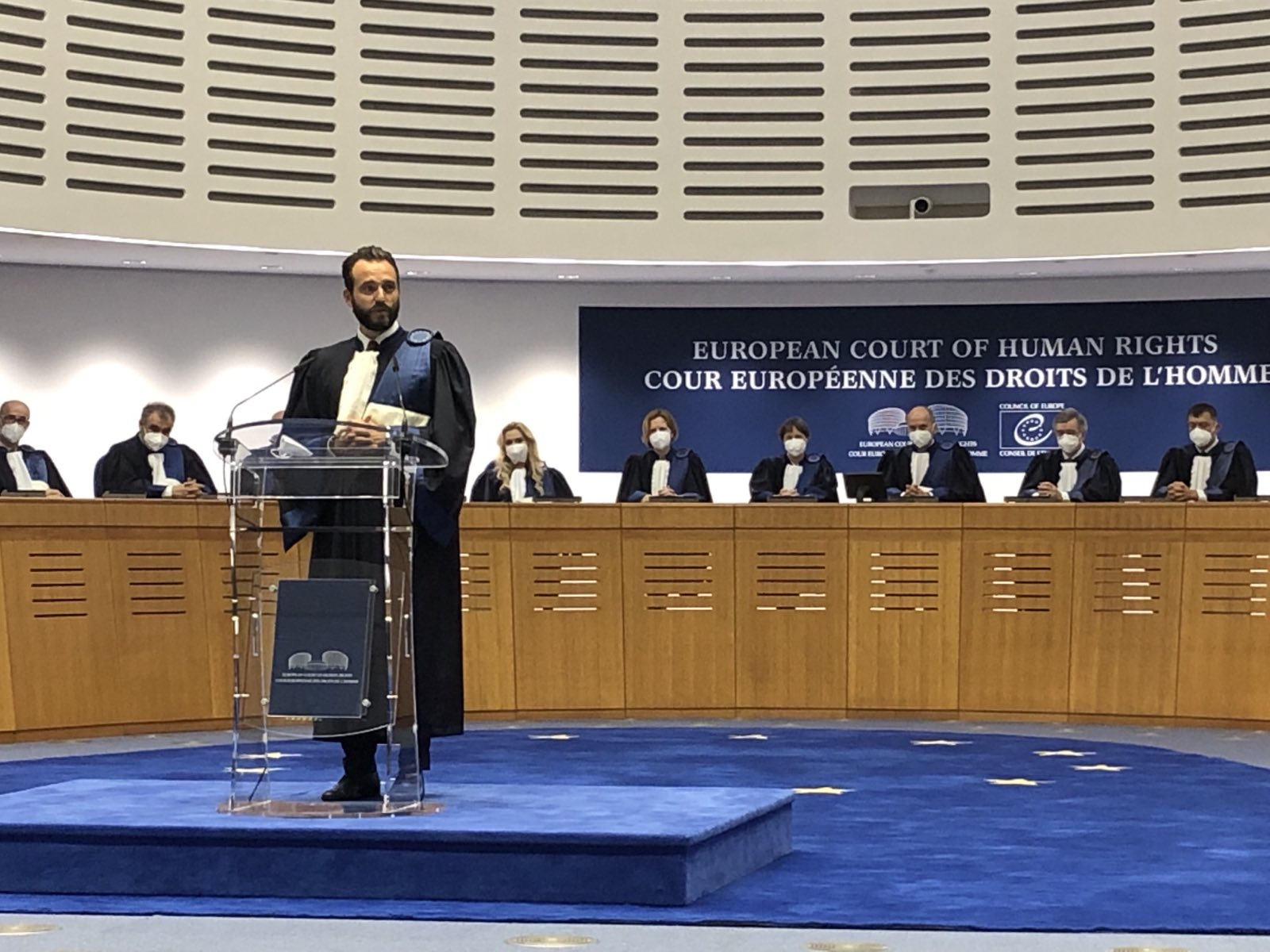Contact center of the Ukrainian Judiciary 044 207-35-46

On September 10, 2021, the President of the Supreme Court Valentyna Danishevska took part in the celebrations marking the opening of the 2021 judicial year (the event had been postponed from January to September due to quarantine restrictions) in Strasbourg.
During the visit, Valentyna Danishevska met with the President of the European Court of Human Rights, Robert Spano, to discuss cooperation between the Supreme Court and the ECtHR. The discussion was also attended by the judge of the European Court of Human Rights in respect of Ukraine Ganna Yudkivska, the Registrar of the European Court of Human Rights Marialena Tsirli, Adviser to the President and Registrar of the European Court of Human Rights Rachael Kondak and Deputy Permanent Representative of Ukraine to the Council of Europe Viktor Nikitiuk.
Robert Spano stressed the importance of such meetings in the context of building a common understanding for the sake of achieving fair justice. The President of the European Court of Human Rights emphasized that Ukraine was one of the countries most complained about by its citizens. Currently, the ECtHR has about 11,000 applications from Ukrainian citizens, of which 7,000 relate to Crimea. Robert Spano also outlined the challenges he believed Ukraine faced: judicial reform, encroachment on the independence of judges and the fight against corruption.
Valentyna Danishevska thanked the President of the European Court of Human Rights for the opportunity to meet and spoke in detail about the work of the Supreme Court and the processes taking place in Ukraine. Indeed, the decline in the independence of judges is one of the most acute problems facing the judiciary today. Other problems include a heavy workload on judges and a lack of stability.
The fact that the High Qualification Commission of Judges of Ukraine has not functioned for almost two years has only deepened the shortage of judges in the courts of first and appellate instances - now the judicial system lacks more than 2,000 judges. And the situation continues to deteriorate, given the number of judges who may declare their intention to resign soon.

The President of the ECtHR noted that, unfortunately, many of the problems voiced by the President of the Supreme Court were also relevant to other European countries. As for Ukraine, the negative trend is that judges do not feel sufficient support within the country. Instead, they face pressure and attacks on their independence. Also, Robert Spano noted that he was concerned about the complexity of implementing structural changes, the lack of infrastructure and adequate financing.
Robert Spano assured that when it comes to fundamental principles, the ECtHR was at the forefront as the principal guarantor of those principles. "Ultimately, each member state of the Council of Europe has the right to implement its own version of judicial reform, and we are here to ensure that these reforms are in line with the rights and values that member states have signed when joining the Council of Europe," the ECtHR President concluded.
Ganna Yudkivska added that the excessive length of court proceedings, which is often the reason for applying to the ECtHR, was due, in particular, to the lack of judges. The judge of the European Court of Human Rights also touched upon other systemic challenges in Ukraine, including the problems of pre-trial detention.
ECtHR Registrar Marialena Tsirli informed the audience about the change in the order of consideration of ECtHR cases. At present, priority will be given to cases concerning the right to life (Article 2 of the Convention for the Protection of Human Rights and Fundamental Freedoms). In addition, the ECtHR has decided to give priority to those cases that are important for the country's democratic processes and to allow them to be considered.
On the same day, Valentyna Danishevska took part in a solemn hearing of the ECtHR, in particular in a judicial seminar on the topic "The Rule of Law and Justice in the Digital Age." The seminar discussed the use of artificial intelligence in the judiciary, including in the process of making court decisions, access to justice during and after the coronavirus pandemic (in the context of human rights restrictions). There were also discussions on the use of social media by the judiciary - judges and courts, privacy and digital technologies.

The seminar was opened by Robert Spano. According to him, the digital revolution has brought about changes in our lives that were considered impossible ten years ago. However, technological development also poses serious challenges and risks to society. "In recent years, the Council of Europe has been particularly active in the field of human rights and artificial intelligence. In order to do our job more efficiently and administer justice more quickly, we as judges have to come under some pressure. Artificial intelligence offers certain possibilities in terms of case processing. However, the risks to human rights need to be clearly understood and managed,” the ECtHR President urged.
Presentations were made by the Chair of the Organising Committee of the Judicial Seminar 2021, Judge Gabriele Kucsko-Stadlmayer, Professor of Law and Technology at KU Leuven, the Vice-Chair of the Council of Europe Ad Hoc Committee on Artificial Intelligence Peggy Valcke, the President of the Administrative Jurisdiction Division of the Council of State of the Netherlands, Judge Bart Jan van Ettekoven, the Vice-President of the Constitutional Court of Spain, Judge María Encarnación Roca Trías, the President of the Constitutional Court of Slovenia, Judge Rajko Knez.
The seminar was followed by a solemn hearing, during which the President of the ECtHR, Robert Spano, and the President of the Supreme Court of the Netherlands, Dineke de Groot, addressed the representatives of the highest courts in the 47 member states of the Council of Europe and the local, national and international authorities to ensure the independence of the judiciary and respect for the human rights guaranteed by the Convention for the Protection of Human Rights and Fundamental Freedoms.